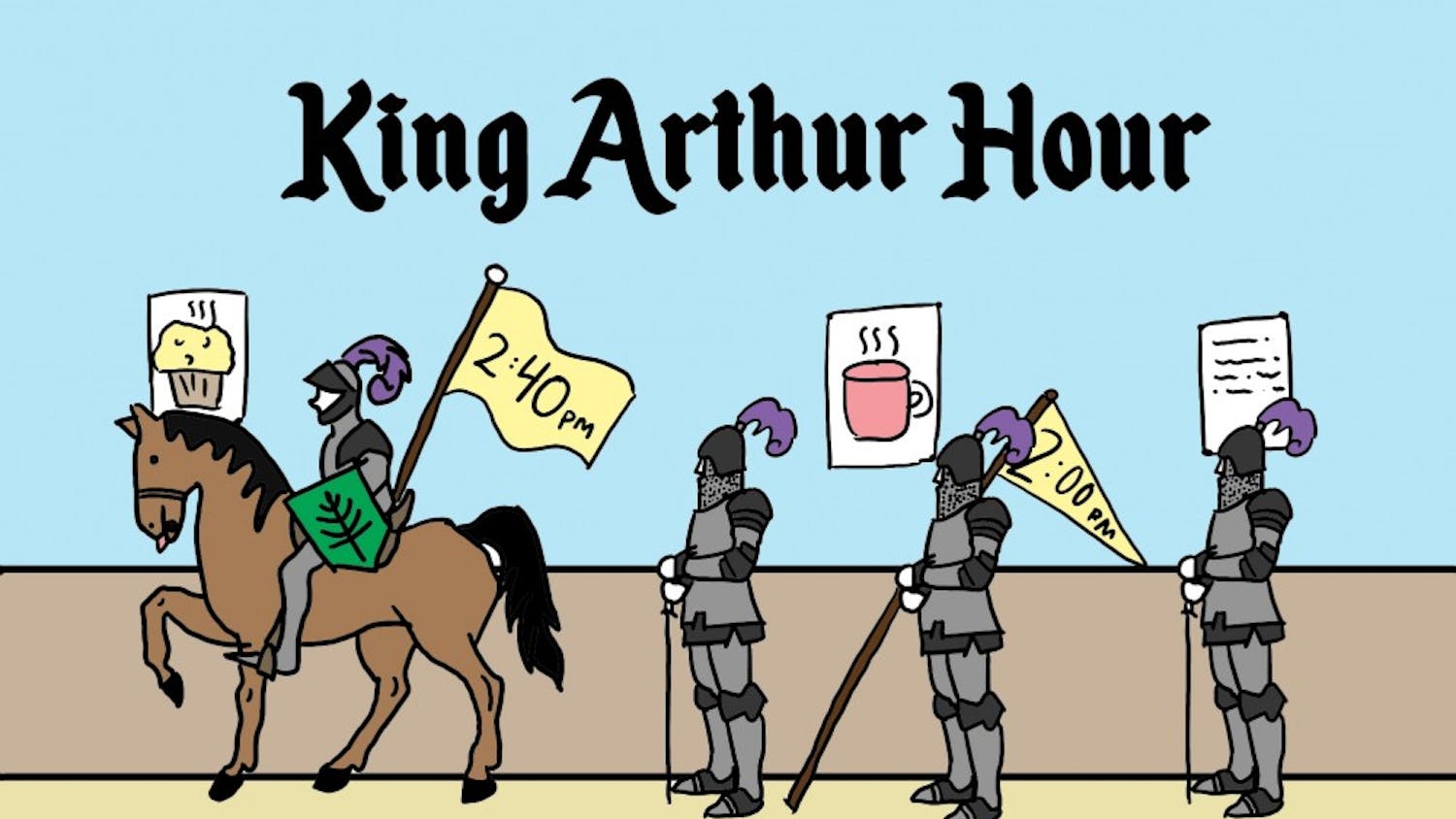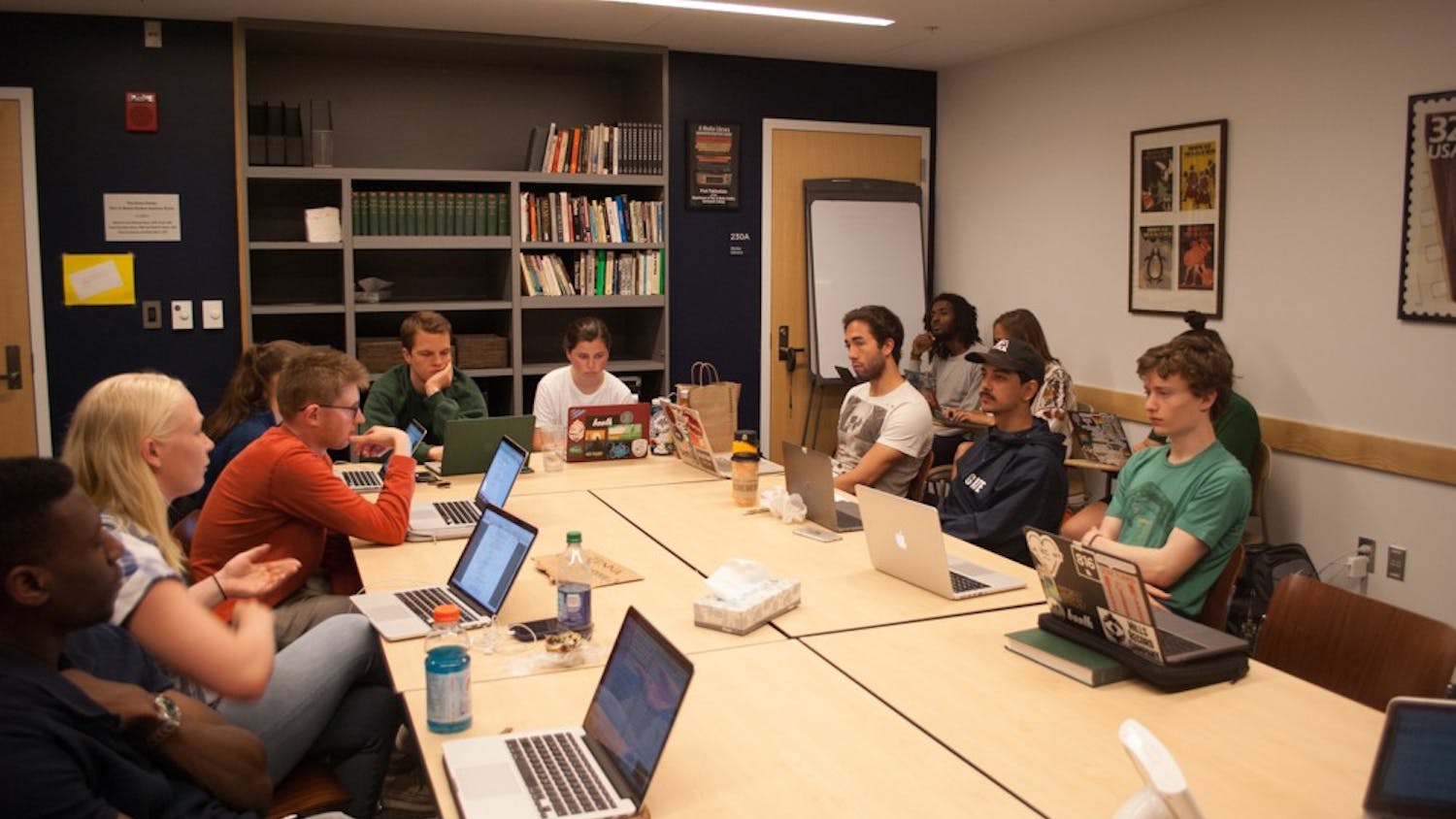Course election is often a stressful time for Dartmouth students. Failing to register for a class can lead to entire alterations of a term schedule. Frantic messaging, swapping of classes and begging a professor to let you into class all comprise this stressful time.
In an attempt to combat this kind of stress, John McCambridge ’22 created a new app called Dartdrop during the 2019 spring break. Dartdrop — a play on “add-drop” — is a mobile application that helps students at Dartmouth make decisions about classes during course selection by compiling information about classes and providing a broad selection of crowdsourced notes.
McCambridge added that one function of the app is class alert, which allows students to find out more information about classes than what is publicly offered. The app assembles reviews from the website Layup List, as well as student interviews for specific classes that have been deemed “popular,” into a huge data set to summarize student experiences with courses or professors. Additionally, the app classifies reviews by importance, with recent interviews having more weight than older ones.
Class median data are also available on the app, according to McCambridge. He added that courses are ranked by popularity so that students can be aware of which courses may be difficult to get into.
“It’s a very useful app,” said Yunive Avendano ’22. “Specifically for me, I forgot to choose my classes last term. I got to quickly see which classes were already filled. It was a great tool for me to see what I wanted.”
In addition to obtaining information about the courses, students can receive notifications as soon a spot in any course they might want to register for opens up.
“This app is great for switching classes,” Avendano said. “Before this app, I used to check every hour. Now, I if I want to switch into a class, I add it to my alerts.”
Another feature of the app is its ‘notesharing’ feature, through which “top students” share their notes from a course, McCambridge said. He added that this feature was developed to allow working students to focus on academics and enrich their learning experience.
“I am a big fan of the notes part, because you are selling the notes to earn money on the side and providing resources for students,” said Lidia Balanovich ’22, who provided McCambridge with feedback related to the app’s design.
Through notesharing, students can access a package of notes with a broad overview of the course to supplement their learning.
McCambridge said he was very intentional in ensuring that Dartdrop does not violate the College’s honor code in any way through its use of note sharing.
“We’ve thought about the ethics far, far more than the engineering,” McCambridge said. “We want to work with the College and maintain honor and respect for the College. [Not facilitating or condoning cheating] is central to the development of the product.”
To ensure the app never violates the honor code, McCambridge said he made sure that professors have access to the app. He added that professors have the authority to remove content that violates their policies. Furthermore, only students who understand the honor principle are allowed to share their notes.
“You are not posting exams, but what you gained from the class,” Balanovich said. “I don’t think it breaks the honor code.”
As of now, there is no marketing for Dartdrop, according to McCambridge; the app relies on word of mouth. It was first announced on a Reddit page, and in 20 minutes, had become the most trending post, according to McCambridge.
Despite the lack of advertising, McCambridge said that the app appears to be successful. Within the first 24 hours, according to McCambridge, the app garnered 15,000 page requests, which appear whenever a user requests specific information, refreshes or uses the app.
Currently, McCambridge said he is seeking feedback for the app. He added that it has been difficult to receive feedback because, while he wanted to reach out to users, he did not want to violate their privacy by looking at their registered emails. He added that he is also working on making the app available for post-graduate classes and for the Android platform.
“I want to make Dartmouth better and students less anxious,” McCambridge said.



